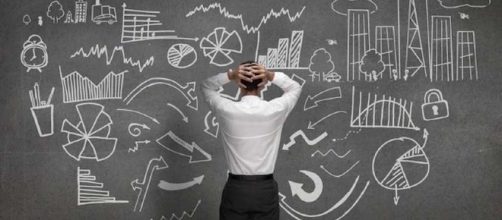The world wide web has changed the way we live, there is no doubt about that. But, it has also changed the way we consume information. We are practically bombarded with it. According to a study conducted at the University of California, the average person consumes up to 34 GB of information daily, which is enough to overload most laptops. Is it enough to overload the human brain? It may very well be.
A mess of information
Since we consume and digest large quantities of information, we are forced to filter it. We ignore most of it and accept a very small part.
A result of this can be a very well-known psychological phenomenon -- confirmation bias. Confirmation bias is, by definition: "The tendency to search for, interpret, favor, and recall information in a way that confirms one's preexisting beliefs or hypotheses". This means that we are inclined to seek out information that fits our belief system, confirms our preexisting opinions, and notions. We, subconsciously, look for information that we agree with. How has this transformed our society?
The digital age
Smartphones, computers, social media, 24-hour television programs - digital information is everywhere around us. We are exposed to it, addicted to it, and influenced by it. Our view of the world and our belief system is based on the information that we receive.
For example, take a look at the 2016 election in the United States - Hillary Clinton and Donald Trump have extremely aggressive and biased fan bases. This has translated into "real life" and divided the entire country. While Hillary Clinton relied on conventional media, Donald Trump, as an outsider, relied heavily on new media and social networking sites such as Twitter.
By using the term "Fake News" to describe any and all mainstream information, Trump has successfully discredited, rightfully or not, major news outlets, at least in the eyes of his voters. No one can deny that this has helped him win.
This is perhaps the first time in history digital information has directly influenced the real world in a major way - Donald Trump won, in large, thanks to him and his campaign staff's new media efforts.
History will show that the 2016 election was a major paradigm shift. But, it has also shown that we are inclined to stick out our group alliances and confirm our biases which has, to an extent, killed constructive discussion and stunted progress - who can you debate with if everyone you're talking to agrees with every major point you're making? The most important question, however, is: How can one differentiate between real and fake news? We are yet to find a way.


